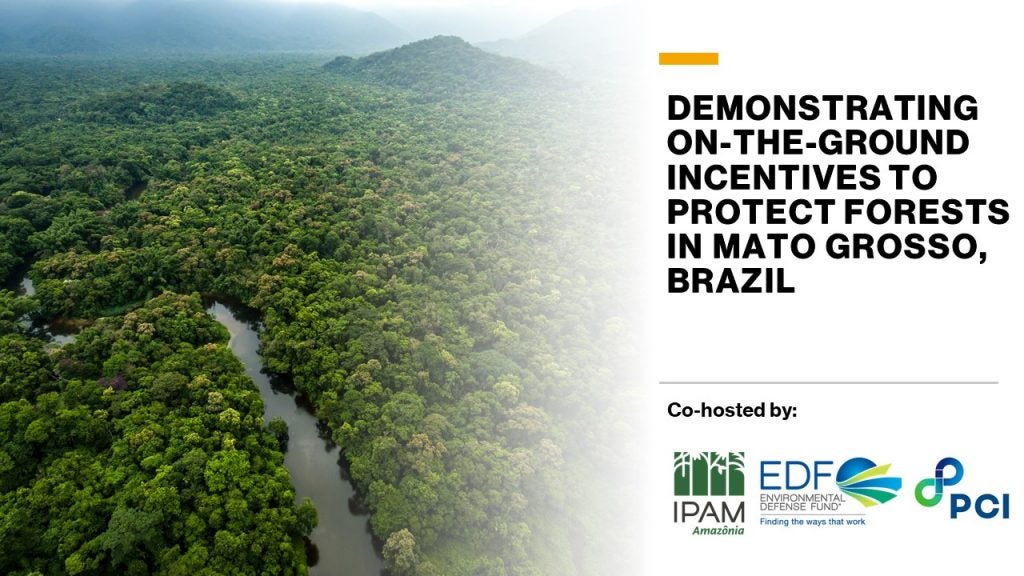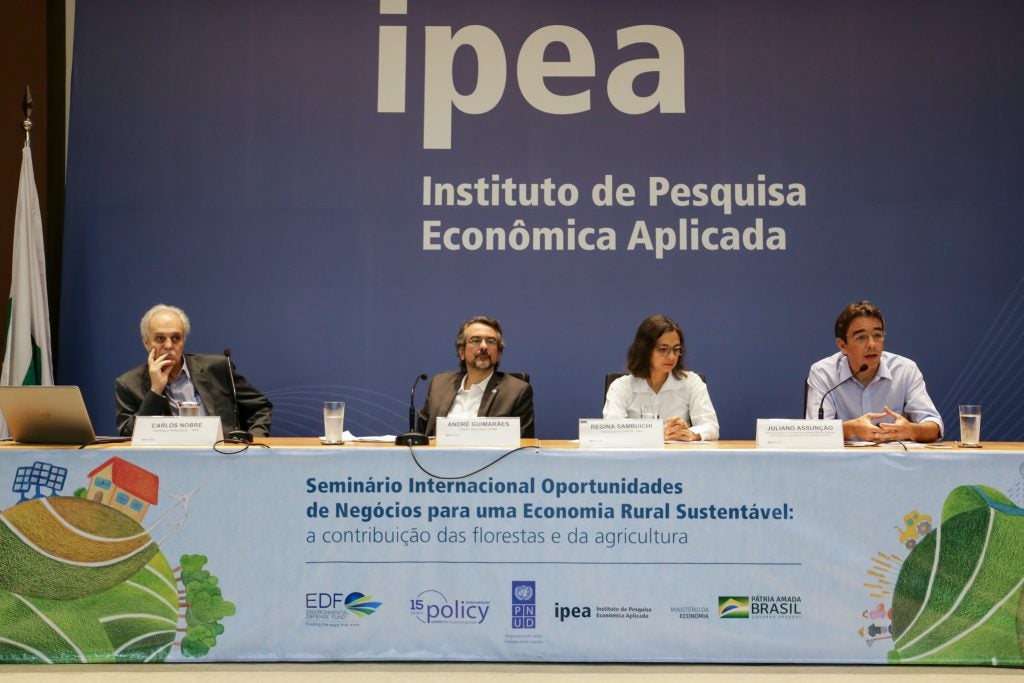Join us during London Climate Action Week for the webinar Demonstrating on-the-ground incentives to protect forests in Mato Grosso, Brazil on November 16th, 11:30 am EST where we’ll be discussing this issue and more. Watch the recording here.
By Breno Pietracci, Ph.D., economist at Environmental Defense Fund
Many Brazilian farmers have large tracts of Amazon rainforest and Cerrado tropical savanna on their properties. According to the 2012 Brazilian Forest Code, landowners in the Amazon must maintain at least 80% of their farms as standing forests while those in the Cerrado must keep no less than 35%. Farmers have the right to clear all vegetation above these legal thresholds.
But what if over-compliant farmers were financially rewarded to keep those forests they can legally deforest alive? That’s the aim of CONSERV, a novel and groundbreaking forest protection program recently launched in Brazil, with international debut scheduled for the London Climate Action Week. CONSERV is a systemic, scalable initiative that constitutes part of a set of strategies that can reduce deforestation at a jurisdictional (national or state-level) scale.
Brazil has successfully reduced deforestation by deploying an arsenal of command-and-control forest conservation policies over the last decades. From 2004 to 2012, deforestation in the Legal Amazon fell by more than 80% with a combination of increased law enforcement, expansion of protected areas – indigenous territories and conservation units, rural credit reforms and supply chain initiatives. Such remarkable achievement has mainly relied upon using “sticks” (penalties) and only limited “carrots” (incentives).
Over those years, some multilateral programs have attempted to use incentive-based payments for performance in reducing deforestation at large scales, namely the Amazon Fund and the REDD+ Early Movers program in the states of Acre and Mato Grosso. However, these have not yet been deployed at a scale to significantly change the behavior of rural producers.
As few positive incentives have materialized in the effort to reduce Amazon deforestation in Brazil, since 2013 the gains in preventing deforestation have stalled and are now under threat with weakened command-and-control and law enforcement. CONSERV is a first step in providing the missing positive incentive piece of the equation.











